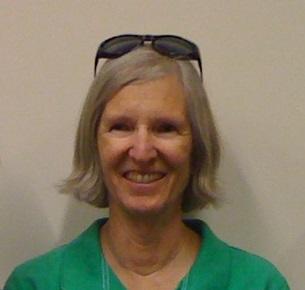
The University of California, Riverside, has received a grant of $5 million from the California Institute for Regenerative Medicine, the state’s stem cell agency, to train young scientists and physicians in stem cell research.
“We would like to increase the number and diversity of highly qualified doctoral students and postdoctoral level scientists trained in stem cell biology in the California workforce and to provide trainees with the communication skills they need to be successful,” said Prue Talbot, the director of UCR’s Stem Cell Center, a professor of cell biology, and the five-year grant’s principal investigator.

Talbot explained that the training will be offered through an interdisciplinary program named Training Program to Advance Interdisciplinary Stem Cell Research, Education and Workforce Diversity, or TRANSCEND, and will emphasize diversity, inclusion, and equality.
Fourteen graduate programs on campus will provide mentors for the trainees. Mentors will offer research training in stem cell biology and regenerative medicine in the areas of bioengineering; neuroscience and neurodegenerative disease; prevention and treatment of birth defects, and reproductive failure.
TRANSCEND will train 16 doctoral students, 11 postdoctoral researchers and provide three core graduate-level courses as well as two stem cell seminars each year of the grant’s duration. TRANSCEND will also offer an annual stem cell symposium and provide activities such as community outreach, travel to scientific meetings, interaction with patients and advocates, and opportunities to interact with researchers at the School of Public Policy and the School of Medicine’s Center for Health Disparities.
Trainees will be educated in stem cell biology, engineering, bioethics, and science to policy, and will develop communication skills in and contribute to the creation of new knowledge in stem cell biology and regenerative medicine.
“Cross training in the life sciences, biomedical sciences, and engineering will greatly benefit our trainees,” said Talbot, who will serve as the director of TRANSCEND. “We will build on UCR’s excellent record of recruiting, retaining, and training disadvantaged students from areas with unmet medical needs.”
UCR graduate students and postdoctoral researchers interested in receiving the training From TRANSCEND may contact Talbot at talbot@ucr.edu. Trainees will have an opportunity to network with researchers at the City of Hope, UC Irvine, and the Inland Empire Stem Cell Consortium campuses.
The Inland Empire, encompassing Riverside and San Bernardino counties, is one of the most highly diversified and medically underserved areas in California. The region has a critical need for stem cell researchers and is poised to introduce stem cell therapies to the citizens of the Inland Empire and beyond.
“Our trainees will be well prepared to contribute to the California workforce, while at the same time augmenting its diversity,” Talbot said. “Discoveries made by TRANSCEND trainees will benefit Californians by leading to new therapeutics, diagnostics, and medical devices for managing diseases, trauma, and the quality of life.”
Most of the trainees are expected to come from the Inland Empire and TRANSCEND is expected to benefit economic development and growth in California.
“Our cohort of well-qualified stem cell scientists will be ready to fill positions in the Inland Empire thereby enhancing their social mobility, while simultaneously aiding economic development by motivating biotech industries to locate in the Inland Empire,” Talbot said. “Our trainees will make new discoveries that lead to improvements in stem cell therapies and regenerative medicine, and thus assist the economic development in the Inland Empire.”
The start date of the grant is December 1, 2021. TRANSCEND will begin recruiting trainees this fall.
Associate directors of TRANSCEND are Martín García-Castro, an associate professor of biomedical sciences in the School of Medicine; and Huinan Liu, a professor of bioengineering in the Marlan and Rosemary Bourns College of Engineering.